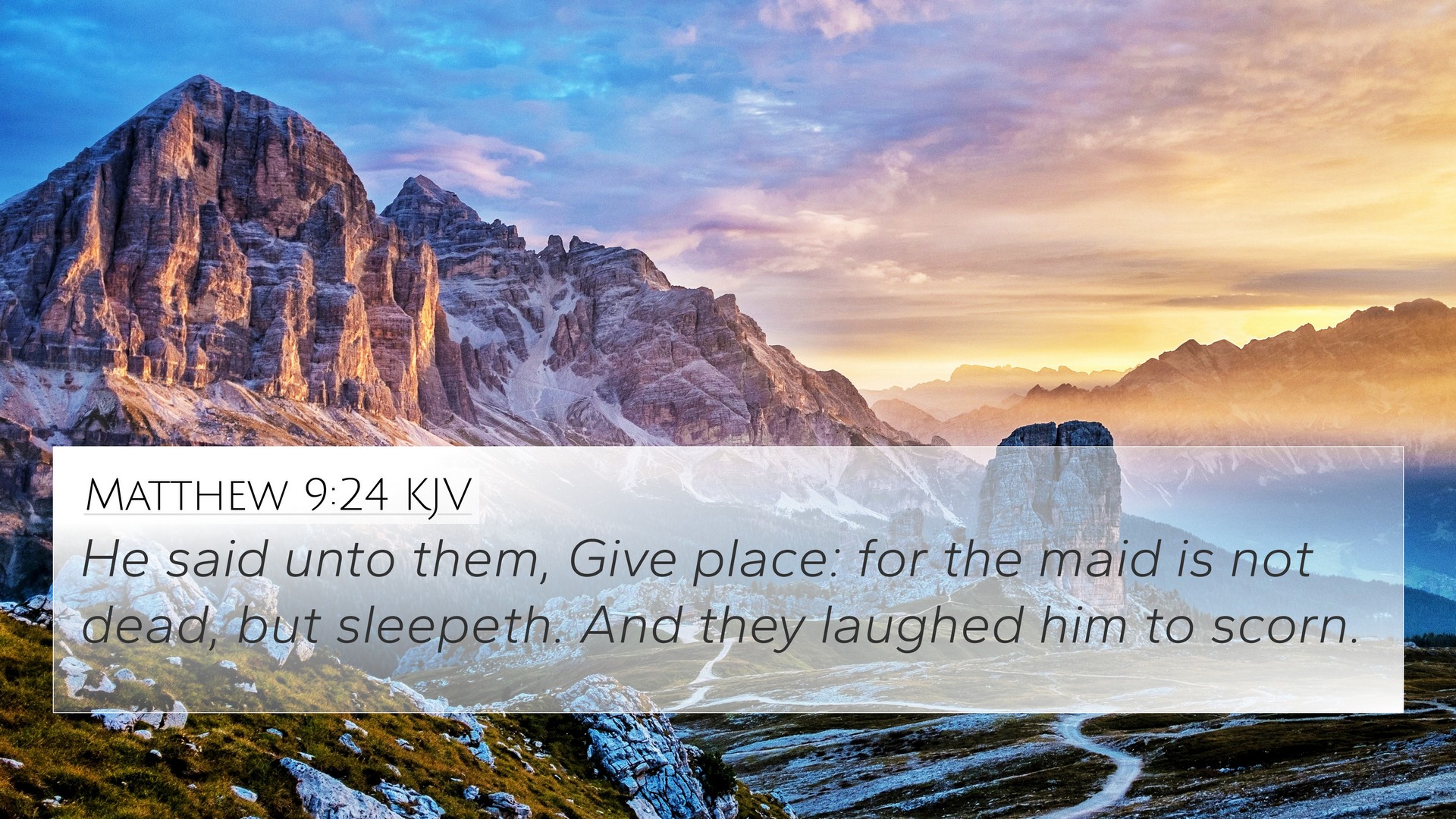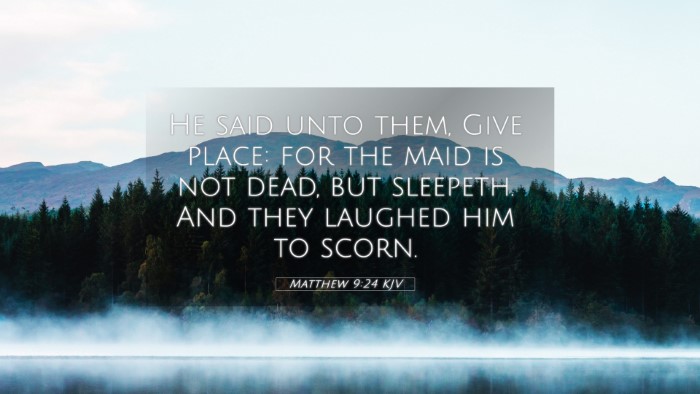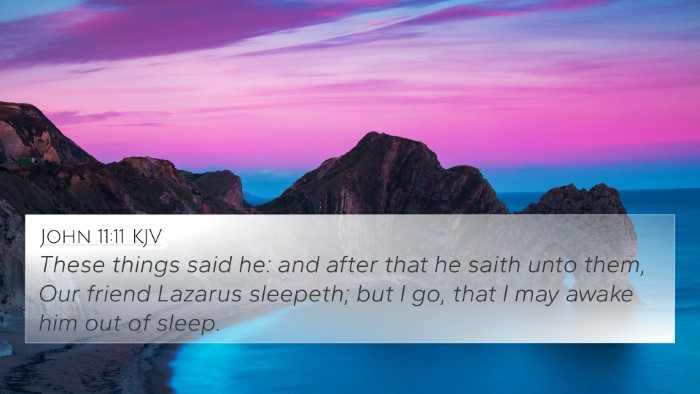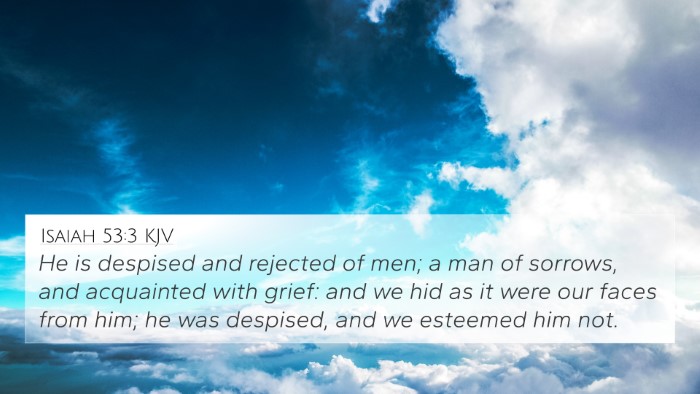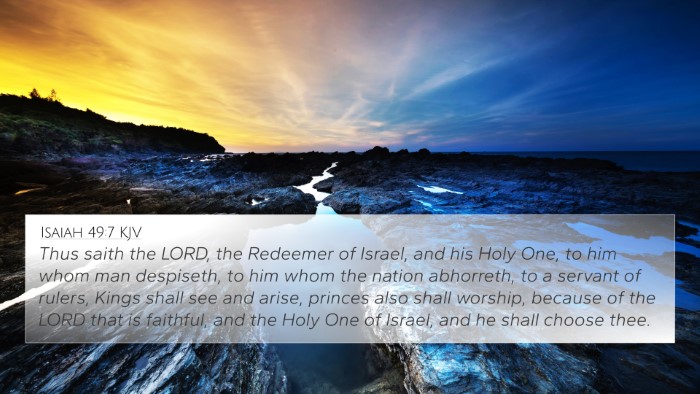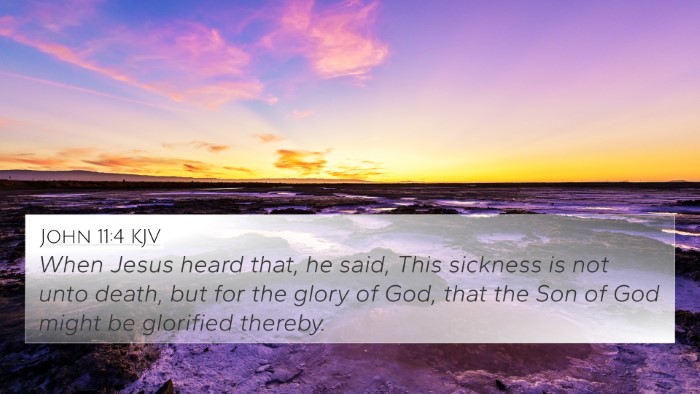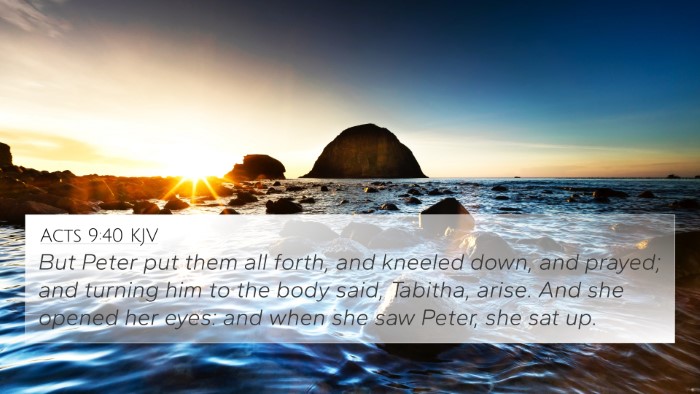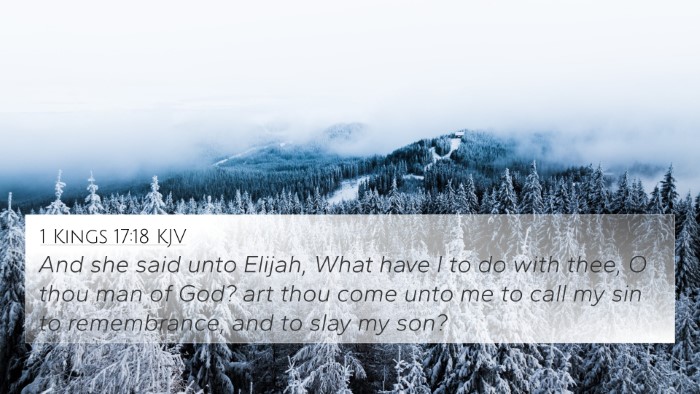Understanding Matthew 9:24
Matthew 9:24 states: "He said unto them, Give place: for the maid is not dead, but sleepeth. And they laughed him to scorn." This verse occurs in the context of Jesus healing a girl who had just died. Here, He asserts that she is merely sleeping, indicating His power over death and foreshadowing her resurrection.
Contextual Analysis
For a rich understanding, one should consider the surrounding verses and the overall narrative of Jesus's ministry. Matthew 9:18-26 recounts the story of a ruler who implored Jesus to heal his daughter. Upon arriving, the crowd's mourning leads to a moment of scorn when Jesus declares her sleep.
Interpretations from Public Domain Commentaries
Matthew Henry's Commentary
Matthew Henry emphasizes the faith of the ruler requesting help and the derisive laughter of the crowd. He suggests that Jesus’s declaration of her condition reflects a deeper theological truth about life and death. To Jesus, death is not a final state but a temporary condition for those who will be resurrected.
Albert Barnes's Notes
Albert Barnes highlights the contrast in the reactions of the crowd versus Jesus's assurance of the girl's condition. He notes that Jesus’s statement challenges the prevailing understanding of death, illustrating that faith can see beyond physical circumstances. The comment about sleep implies a promise of revival and a call to recognize Jesus’s authority even in despair.
Adam Clarke's Commentary
Adam Clarke elaborates on the cultural context of mourning in Jewish society, explaining that the crowd’s mockery reveals their disbelief. Clarke also indicates that Jesus's response serves to strengthen the faith of those who believe in His miraculous powers and the hope of resurrection. The implication is that believers must trust in divine intervention amidst dire situations.
Cross-Referencing Biblical Texts
Matthew 9:24 connects with several significant Biblical themes and verses:
- John 11:11-13: Jesus refers to Lazarus’s death similarly, calling it sleep.
- 1 Thessalonians 4:14: Paul mentions the resurrection of those who sleep in Jesus.
- Mark 5:39: A parallel account where Jesus also states that the child is not dead.
- Luke 8:52: This account emphasizes the crowd's mourning and disbelief.
- Revelation 14:13: Assurance of the blessed dead resting in Christ.
- Isaiah 26:19: A prophetic verse on resurrection and deliverance from death.
- Psalm 30:5: "Weeping may endure for a night, but joy comes in the morning," relating to hope amid sorrow.
Thematic Connections
This verse reflects the broader themes of:
- Faith in the Face of Death: It encourages believers to maintain faith when confronted with despair and hopelessness.
- Jesus’s Authority: It asserts the divine authority of Christ over life and death, showing His power to bring life where there appears to be none.
- The Nature of Death: It invites reflection on the understanding of death in Scripture, presenting it as a temporary state rather than a permanent condition.
Conclusion
Matthew 9:24 not only illustrates Jesus's control over life and death but also serves as a profound statement on the nature of faith and hope in the resurrection. By linking this verse to others, one finds a cohesive narrative that emphasizes the power of Christ and the hope offered to believers.
Tools for Cross-Referencing
To deepen your study, consider utilizing various tools:
- Bible Concordance: For locating specific terms and themes across the texts.
- Bible Cross-Reference Guide: To identify thematic links between verses.
- Cross-Reference Bible Study: Engage methodologies that explore interrelated texts.
Further Study and Reflection
In studying Matthew 9:24, one can explore how it relates to different contexts in the Old and New Testaments. This verse challenges readers to grasp the overarching message of the Gospel: that Jesus transcends earthly limits, offering hope and salvation to humanity.
